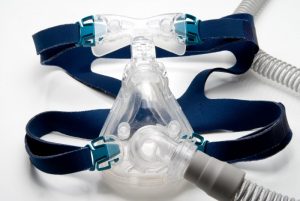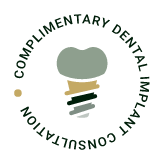 Are you concerned that some of the signs you’re exhibiting could be linked to sleep apnea? You’ve noticed you’re unable to keep your eyes open while at work, you’re more irritable, and you seem to be much more forgetful these days. While each of these symptoms can be easily mistaken for other diagnoses, they’re all potential signs of sleep apnea in Wall Township. If you’re sleeping habits aren’t what they used to be, here are some ways to tell if sleep apnea is the reason and 4 ways to treat it.
Are you concerned that some of the signs you’re exhibiting could be linked to sleep apnea? You’ve noticed you’re unable to keep your eyes open while at work, you’re more irritable, and you seem to be much more forgetful these days. While each of these symptoms can be easily mistaken for other diagnoses, they’re all potential signs of sleep apnea in Wall Township. If you’re sleeping habits aren’t what they used to be, here are some ways to tell if sleep apnea is the reason and 4 ways to treat it.
What Are the Symptoms Associated with Sleep Apnea?
Waking up gasping for air in the middle of the night? Experiencing extreme fatigue day in and day out? It could be that you have sleep apnea, which is a serious medical condition. Individuals with this sleep disorder may not know they have it since many of the symptoms occur at night while they are asleep. However, there are other ways you can tell if sleep apnea may be what’s causing you to have a restless night’s sleep.
- Loud snoring
- Excessive daytime fatigue
- Morning headaches
- Dry Mouth
- Irritability
- Difficulty paying attention
How Can You Treat It?
If the symptoms mentioned above are enough to have you making an appointment with your doctor, he may want to perform a sleep study before confirming a sleep apnea diagnosis. Once there is an affirmative answer that you do, indeed, have it, there are many methods of treatment. Some of which include:
Continuous Positive Airway Pressure (CPAP)
Considered to be one of the most common forms of sleep apnea treatment, the CPAP is a mask that’s worn at night and delivers air pressure at a capacity that helps to keep your upper airway open. This prevents snoring or apnea to occur. Though it is a reliable method, many people find it bulky and uncomfortable. However, if your doctor wants you to try the CPAP machine, don’t stop using it just because you find it a bit uncomfortable. Instead, give it some time. Also, if you begin snoring while using a CPAP, talk to your doctor about adjusting the pressure settings.
Wearing an Oral Appliance
If the CPAP machine is not an option, your doctor may suggest an oral appliance that is designed to keep your throat open while asleep. They look like a mouthguard and can open your throat by bringing your jaw forward, often relieving snoring and mild obstructive sleep apnea. Throughout the first year of wear, you may need to revisit your dentist to make sure it is still fitting well.
Auto-CPAP or BPAP
Similar to a regular CPAP machine, the auto-CPAP automatically adjusts the pressure levels while you’re sleeping. The bilevel positive airway pressure (BPAP) machine can deliver additional pressure when you inhale and less when you exhale. One of these two options may be possible if the regular CPAP does not work.
Surgery
If you’ve tried other therapy treatments and had no success, it may be time to consider surgery. Different types of surgical options are available depending on the severity of the apnea. These might include:
- Tissue removal or shrinkage
- Jaw repositioning
- Implants
- Nerve stimulation
- Tracheostomy
- Weight-loss surgery
- Removal of adenoids or enlarged tonsils
In addition to surgery and therapy, you may also consider losing excess weight if you are overweight or obese, exercising, avoiding alcohol or tobacco, and trying to sleep on your side instead of your back.
Sleep apnea is not only a dangerous condition, but it is also an exhausting one. No one wants to walk around feeling like a zombie, so if you suspect you might be exhibiting some of the symptoms, talk to your doctor today about participating in a sleep study and treatment options for sleep apnea.
About the Author
Dr. Edward J. Dooley, DMD, FICOI, attended the College of the Holy Cross for his undergraduate degree. He then went on to attend the University of Pennsylvania’s School of Dental Medicine to achieve his Doctor of Dental Medicine. Dr. Dooley is a veteran of the United States Navy, serving from 1982-1985. Providing comprehensive services, he and his team are prepared to help you and your family receive the dental care you need. To learn more, contact us via our website or by calling (732) 974-2288.


